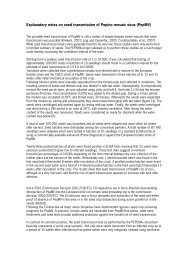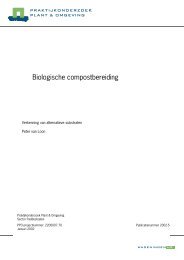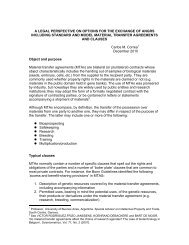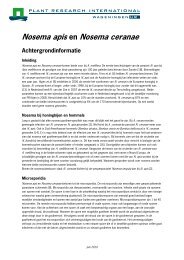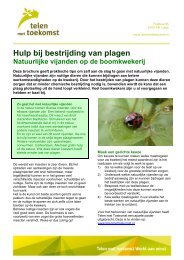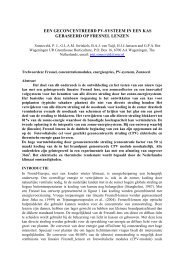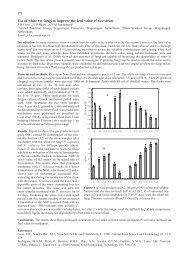Oil spill dispersant article
Oil spill dispersant article
Oil spill dispersant article
Create successful ePaper yourself
Turn your PDF publications into a flip-book with our unique Google optimized e-Paper software.
INTRODUCTION<br />
Dispersing <strong>spill</strong>ed oil into the sea by the use<br />
of oil <strong>spill</strong> <strong>dispersant</strong>s can be an environmentally<br />
acceptable method of oil <strong>spill</strong> response. A<br />
“net environmental benefi t” will be achieved<br />
if the damage that might be caused to marine<br />
life by dispersed oil is less than the damage<br />
that would have been caused if the oil had<br />
come ashore or drifted near to particularly<br />
oil-sensitive resources.<br />
This justifi cation for <strong>dispersant</strong> use cannot,<br />
however, be imported into every oil <strong>spill</strong> scenario.<br />
Dispersing <strong>spill</strong>ed oil in some circumstances<br />
might have the potential to damage<br />
marine life that exists in the close vicinity of<br />
a dispersing oil slick. Dispersed oil droplets<br />
and the chemical components in oil that are<br />
transferred into the sea have the potential<br />
to exert toxic effects, but only if the oil is<br />
present at high enough concentration for prolonged<br />
periods. This will only occur if there is<br />
not suffi cient dilution of the dispersed oil and<br />
oil components into the sea.<br />
A great deal of research work has been carried<br />
out on <strong>dispersant</strong>s over the last 30 years.<br />
Topics that have been studied include:<br />
• The development of more effective <strong>dispersant</strong>s.<br />
• The capabilities of <strong>dispersant</strong>s as a function<br />
of <strong>spill</strong>ed oil properties and weathering time<br />
at sea.<br />
• The ecological effects caused by <strong>dispersant</strong>s<br />
and dispersed oil.<br />
Any potential use of oil <strong>spill</strong> <strong>dispersant</strong>s<br />
should be justifi ed by a rigorous scientifi c<br />
examination of the relevant facts. The concerns<br />
and fears of those people not normally<br />
concerned with oil <strong>spill</strong> matters need to be<br />
addressed because the sea and the coastline<br />
are a common heritage of everybody, not<br />
solely those involved in the oil production or<br />
shipping industries.<br />
EFFECTS OF OIL SPILLS<br />
When an oil <strong>spill</strong> has occurred, some sections<br />
of the general public and some environmental<br />
pressure groups might say that the only<br />
acceptable oil <strong>spill</strong> response strategy is the<br />
total removal of the oil and complete restoration<br />
of the environment to the pre-<strong>spill</strong><br />
condition. Since this can never be achieved,<br />
these expectations can never be met and<br />
some people always consider that any oil <strong>spill</strong><br />
response is only a partial success.<br />
Spilled oil has the potential to cause ecological<br />
effects, yet crude oil has been seeping into the<br />
sea for thousands of years at some locations<br />
around the world. These natural oil seeps have<br />
not caused major damage and the ecology<br />
of these areas has adapted to persistent and<br />
chronic oil pollution. Accidental <strong>spill</strong>s of oil<br />
can deposit very large volumes into the sea<br />
over a short period of time and in a compara-<br />
Dead seabird covered in sticky oil from the “John R -<br />
incident”, Norway, 2001,<br />
tively localised area. This can cause temporary<br />
ecological damage, although natural recovery<br />
will eventually occur. The physical effects of<br />
the <strong>spill</strong>ed oil, plus the less visible effects<br />
caused high concentrations of toxic components<br />
released from the oil, will affect the<br />
some marine resources in a localised area.<br />
4



